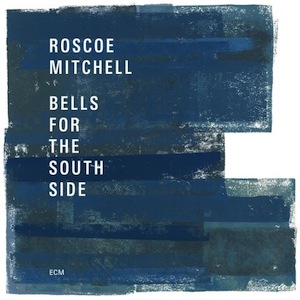Label/Year: Blue Note, 2017
Lineup – Charles Lloyd: saxophone, flute; Jason Moran: piano; Reuben Rogers: bass; Eric Harland: drums.
At the age 79, spectacular saxophonist Charles Lloyd keeps wielding the same impactful language and elegant expressiveness that assured him a prominent place in the history of jazz.
The long-awaited successor of the amazing Wild Man Dance (Blue Note, 2015), Passin’ Thru, encompasses old and new material in a total of seven ravishing long tracks that match very much his own style.
The album is another Blue Note Records outing and marks the 10th anniversary of Mr. Lloyd's new quartet, now with Jason Moran on piano, Reuben Rogers on bass, and Eric Harland on drums.
Lloyd re-examines the highly celebrated “Dream Weaver”, first recorded in 1969, with spiritual incisiveness and renewed harmonic intensity. His dramatic timbral interchanges combine wonderfully with Moran’s flurries in a mystifying, beautiful intro, where Rogers and Harland remain focused and connected. After a while, one can easily notice that catchy riff and seductive rhythm that made this tune so known and gracious in its sparkling danceability.
“Part 5, Ruminations”, one of the new compositions, feels quite loose as the quartet adapts to an unsettled route that makes a gradual detour into a pleasant swing. This ultimate cheery mood galvanizes the bandleader and Moran for another pair of striking improvisations.
The remaining new compositions take different orientations under Lloyd’s monstrously compelling power of speech, which varies from contemplative and affectionate to exultant and entrancing. The newest creations are “Nu Blues”, which carries a positive bop vibe due to its musical nature, “Tagore on the Delta”, which is nothing else than a decorative, far-flung, groovy fusion marked by the lightness of Lloyd’s flute over strummed piano strings, funk-oriented bass licks, and undemanding percussion attacks, and the closing piece, “Shiva Prayer”, a poignant meditation written for the late Judith McBean that features wet mallet drumming, deep bowed bass, and dreamy piano voicings.
Completing the roster, we have “How Can I Tell You”, an optimistic, heartfelt ballad that haunts, gazes at the infinite, and rejoices all at the same time, and "Passin' Thru", introduced by Rogers’ expressive pizzicato and exhibiting brisk melodies over a frantic rhythm. The former was first recorded on the album Discovery! in 1964 while the latter saw the daylight in 1963 when Lloyd was still a member of the Chico Hamilton Quintet.
Equal to himself, Lloyd never ceases to amaze. He takes advantage of the strong bonds established by the members of the quartet and throws in his limitless instrumental resources to envelop the world with bliss. Insightful, exciting, prayerful, genuine… ladies and gentlemen… my dearest saxophonist, Charles Lloyd, has a great new album.
Grade A
Favorite Tracks:
01 - Dream Weaver ► 04 - How Can I Tell You ► 05 - Tagore on the Delta








































